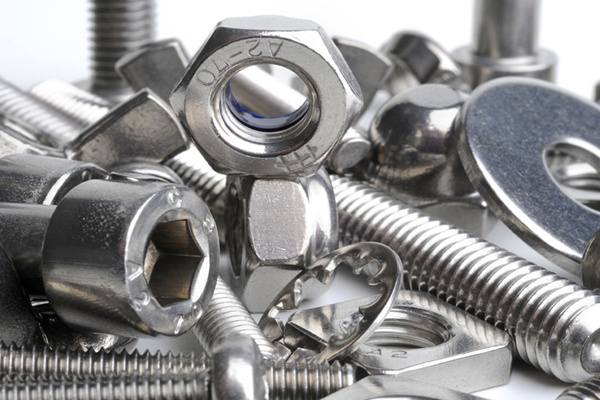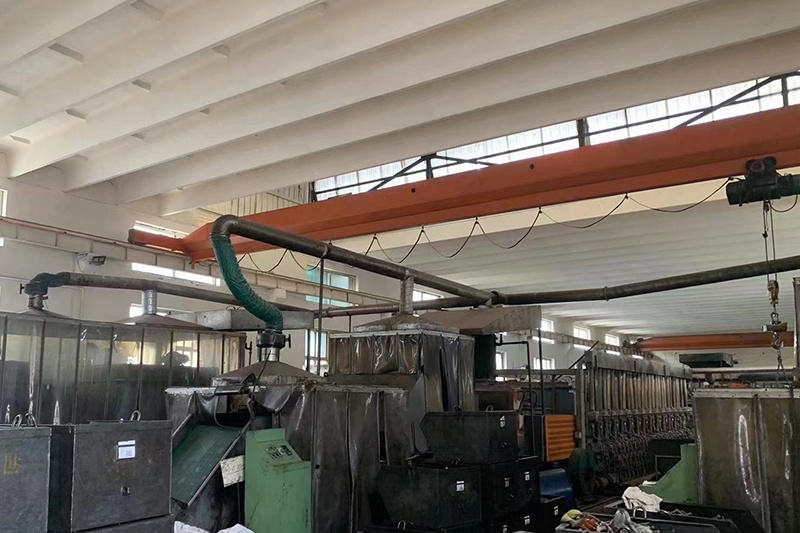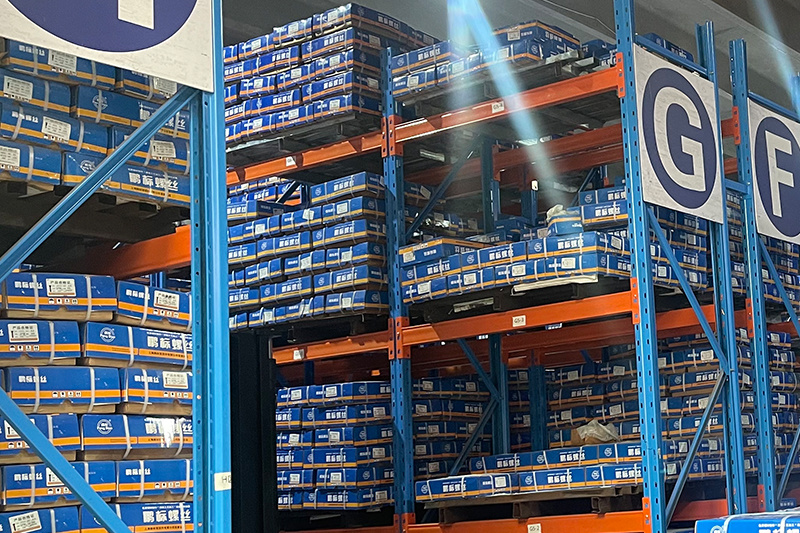language
English
العربية
বাংলাদেশ
Български
Hrvatski
Česky
Dansk
Nederland
 Esperanto
Esperanto
Slovenski
Filipino
Suomi
Français
Maori
 Shqiptare
Shqiptare
Georgian
 Euskara
Euskara
Deutsch
Ελλάδα
ישראל
इंडिया
Magyarország
Ísland
Indonesia
Irlanda
Italia
日本語
Sovensko
Հայաստան
한국
Kyrgyz
ປະເທດລາວ
 Zulu
Zulu
Latvian
Lithuanian
Luxembourgish
 Latinus
Latinus
Macedonian
Малайская
Maltese
Монгол улс
 Cymraeg
Cymraeg
ဗမာ
 தமிழ்
தமிழ்
नेपाल
Norge
ایران
Polska
Portugal
România
Российская
Србија
 Slovak
Slovak
Србија
 Slovak
Slovak
Bosanski
Slovenian
Беларус
España
Sverige
Точик
ประเทศไทย
Türk
Azərbaycan
Uzbek
 Afrikaans
Afrikaans
Việt Nam
How to Choose the Right Floor Expansion Bolt for Your Project
2025-06-21
How to Choose the Right Floor Expansion Bolt for Your Project
When embarking on a construction or renovation project, selecting the appropriate fastening solution is paramount. One critical component that often goes unnoticed until it is too late is the **floor expansion bolt**. These specialized fasteners are designed to anchor objects to concrete and masonry, providing the strength and stability
How to Choose the Right Floor Expansion Bolt for Your Project
When embarking on a construction or renovation project, selecting the appropriate fastening solution is paramount. One critical component that often goes unnoticed until it is too late is the **floor expansion bolt**. These specialized fasteners are designed to anchor objects to concrete and masonry, providing the strength and stability required for various applications. In this comprehensive guide, we will explore everything you need to know about choosing the right floor expansion bolt for your project.
Table of Contents
1. Understanding Floor Expansion Bolts
2. Types of Floor Expansion Bolts
3. Factors to Consider When Choosing Floor Expansion Bolts
3.1 Material and Corrosion Resistance
3.2 Load Capacity and Weight Requirements
3.3 Installation Method
3.4 Environmental Considerations
4. Common Applications for Floor Expansion Bolts
5. Installation Process for Floor Expansion Bolts
5.1 Tools Required
5.2 Step-by-Step Installation Guide
6. Frequently Asked Questions (FAQs)
7. Conclusion
1. Understanding Floor Expansion Bolts
Floor expansion bolts are specifically designed to secure objects to concrete or masonry surfaces. Unlike traditional screws or anchors, these bolts expand against the base material, providing a robust hold that is crucial for safety and durability. In construction, they are typically used to fasten heavy equipment, machinery, and structural components. Understanding how they work and their unique features can significantly impact the success of your project.
2. Types of Floor Expansion Bolts
There are several types of floor expansion bolts available on the market, each with its own advantages and disadvantages. Familiarizing yourself with these types will help you choose the right one for your specific needs.
2.1 Wedge Expansion Bolts
Wedge expansion bolts consist of a bolt and a cone-shaped expansion element. When the bolt is tightened, the cone is drawn into the sleeve, causing it to expand against the walls of the hole. This type is ideal for heavy loads and provides excellent tensile strength.
2.2 Sleeve Expansion Bolts
Sleeve expansion bolts feature a sleeve that expands when the bolt is tightened. They are versatile fasteners suitable for lighter applications and are often used in situations where the base material is less dense.
2.3 Chemical Anchors
Chemical anchors use a two-part adhesive system to bond the bolt to the concrete. This method is ideal for applications requiring high load capacities and where traditional expansion bolts may not perform well, such as in cracked concrete.
2.4 Under-Cut Expansion Bolts
Under-cut expansion bolts are designed for use in specialized applications where traditional expansion bolts may not provide the necessary holding power. This type features a unique under-cut design that creates a mechanical interlock with the base material.
3. Factors to Consider When Choosing Floor Expansion Bolts
Selecting the right floor expansion bolt involves considering various factors to ensure that your choice aligns with the project's requirements.
3.1 Material and Corrosion Resistance
The material of the expansion bolt is crucial for its performance and longevity. Common materials include carbon steel, stainless steel, and galvanized steel. If your project is exposed to moisture or harsh environmental conditions, opt for corrosion-resistant materials to prevent premature failure.
3.2 Load Capacity and Weight Requirements
Understanding the load capacity of the expansion bolt is essential. Each type of bolt has a specific load rating, which indicates how much weight it can support. Evaluate the weight of the items you plan to anchor and choose a bolt that exceeds those requirements to ensure safety.
3.3 Installation Method
Consider how the expansion bolt will be installed. Some bolts require special tools or specific drilling methods. Assess your available tools and skills and choose an expansion bolt that fits within your installation capabilities.
3.4 Environmental Considerations
In addition to corrosion resistance, consider other environmental factors such as temperature fluctuations and exposure to chemicals. Certain bolts are engineered to withstand specific conditions, so ensure you select a product that will perform reliably in your environment.
4. Common Applications for Floor Expansion Bolts
Floor expansion bolts are used in various applications across multiple industries. Understanding these applications can assist you in identifying the right bolt for your needs.
4.1 Industrial Equipment Installation
Heavy machinery and industrial equipment often require secure anchoring to prevent movement during operation. Floor expansion bolts provide the stability needed for these installations.
4.2 Structural Support Systems
In construction, expansion bolts are used to secure structural supports, ensuring the integrity of buildings and other structures.
4.4 Electrical and Plumbing Fixtures
In commercial and residential buildings, expansion bolts are often used to anchor electrical and plumbing fixtures, providing a secure installation that can withstand vibrations and other forces.
5. Installation Process for Floor Expansion Bolts
Proper installation of floor expansion bolts is critical for ensuring their effectiveness. Below, we outline a step-by-step guide to help you through the process.
5.1 Tools Required
Before beginning installation, gather the necessary tools, including:
- Hammer drill
- Drill bits (appropriate size for the bolt)
- Wrench or socket set
- Measuring tape
- Safety goggles and gloves
5.2 Step-by-Step Installation Guide
1. **Measure and Mark**: Determine the precise location for the bolt. Use a measuring tape to ensure accuracy, marking the spot clearly.
2. **Drill the Hole**: Using a hammer drill, create a hole in the concrete or masonry at the marked location. Ensure the diameter and depth are suitable for the chosen expansion bolt.
3. **Clean the Hole**: Remove any dust and debris from the hole to guarantee a secure bond.
4. **Insert the Bolt**: Place the expansion bolt into the hole. Ensure that it fits snugly without excessive force.
5. **Tighten the Bolt**: Using a wrench or socket, tighten the bolt until it is securely anchored. Be cautious not to over-tighten, as this may damage the bolt or substrate.
6. **Check Stability**: Once installed, check the stability of the anchor to ensure it is secure.
6. Frequently Asked Questions (FAQs)
What is the difference between wedge and sleeve expansion bolts?
Wedge expansion bolts feature a cone-shaped component that provides superior holding power, making them ideal for heavy loads, while sleeve expansion bolts are versatile and suitable for lighter applications.
How do I determine the load capacity of a floor expansion bolt?
The load capacity is typically indicated by the manufacturer and is based on the material, type, and installation method used. Always choose a bolt rated for more than the expected load.
Can floor expansion bolts be used in outdoor applications?
Yes, but it’s essential to select corrosion-resistant materials, such as galvanized or stainless steel, to withstand outdoor elements.
What tools do I need for installing floor expansion bolts?
You will need a hammer drill, appropriate drill bits, a wrench or socket set, measuring tape, and safety gear like goggles and gloves.
How do I know if my floor expansion bolt is properly installed?
Once installed, the bolt should feel securely anchored and not move when pressure is applied. Conduct a stability test by gently pulling or pushing on the attached fixture.
7. Conclusion
Choosing the right floor expansion bolt for your project requires a thorough understanding of your specific requirements and the options available. By considering factors such as material, load capacity, installation methods, and environmental conditions, you can ensure a secure and lasting fastener solution. Whether you're anchoring heavy machinery or installing fixtures, selecting the appropriate expansion bolt is critical for the success of your project. With the insights provided in this guide, you are now equipped to make an informed decision that will enhance the safety and durability of your installation.
Floor expansion bolt
RELEVANT INFORMATION
Understanding ISO7380 Allen Pan Head Screws: A Comprehensive Guide for Professionals
ISO7380 Allen pan head screws are integral components widely utilized in various industrial applications. Defined by their unique design featuring a rounded, pan-shaped head and an internal hexagon socket, these screws facilitate efficient fastening and assembly processes. The ISO7380 standard ensures that these screws meet stringent quality and dimensional specifications, making them a reliable c
2025-06-30
The Role of Hexagon Drill Tail Screws in Sustainable Manufacturing Practices
The Role of Hexagon Drill Tail Screws in Sustainable Manufacturing Practices
In an era where sustainability is paramount, industries are constantly seeking ways to minimize their environmental impact while maintaining efficiency and cost-effectiveness. Among the myriad components that contribute to sustainable manufacturing, **hexagon drill tail screws** have emerged as a crucial element. This art
2025-06-27
Understanding Hex Head Wood Screws: Essential Fasteners for Your Projects
Hex head wood screws are vital components in various woodworking and industrial projects, providing robust solutions for fastening wooden materials. These screws are characterized by their hexagonal heads, which allow for easier manipulation and torque application using a wrench or socket. This design not only enhances grip but also facilitates the efficient driving of screws into wood, resulting
2025-06-24









